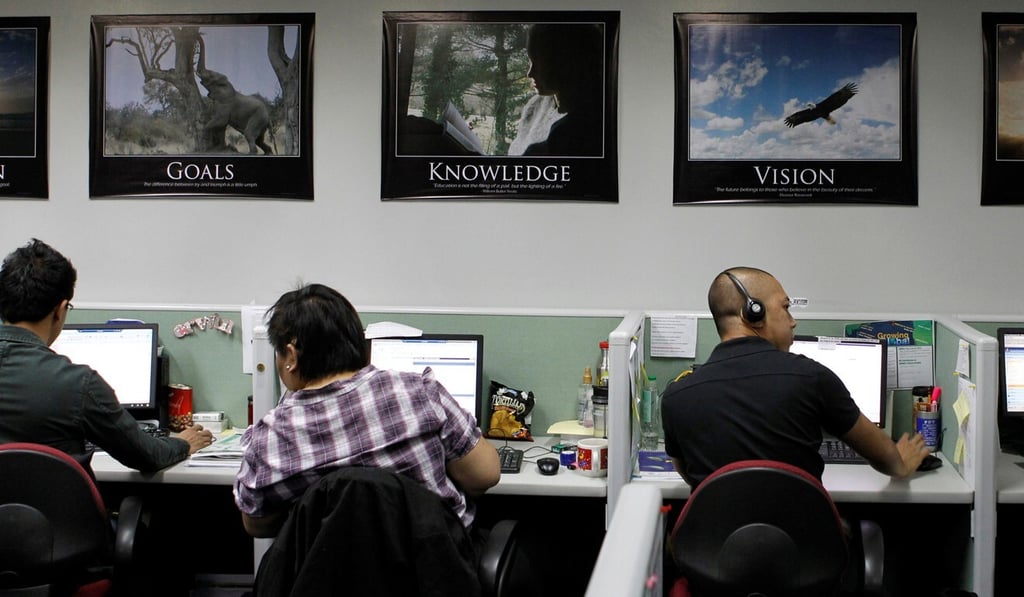Coronavirus: for Asia’s emerging economies, working from home is still a work in progress
- Slow internet and suspicious bosses are hampering work-from-home schemes, particularly among outsourcing firms in the Philippines and India
- But among the more visionary, there’s awareness that a ‘new normal’ has dawned

Abigail Bautista is used to being out of the house by nine in the morning to catch meetings in the office before noon.
But for the past two weeks, the Manila-based consumer brand manager has not been anywhere near the office. Instead, she has been holding court with clients from the comfort of her dining room, in front of a 13-inch laptop.
Businesses large and small are scrambling to provide their workers with the necessary support to be able to do this and function as normally as possible. But in Asia’s emerging economies, problems such as slow internet speeds, lower levels of computer ownership and a lack of trust mean it may be some time before working remotely is as mainstream a practice as it is in Silicon Valley or some of the more technologically advanced OECD nations.
“I have a friend who has no stable internet connection at home and has to go to her neighbour’s place just to go online and get her job done,” says Bautista. “That completely contradicts the whole point about working from home to ensure your safety.”

OUT-OF-OFFICE OUTSOURCING
